Politics
Shepard Fairey, Marilyn Minter, and Other Artists Share Their Reactions to America’s Divisive Midterm Elections
We check in with the same figures we spoke to after 2016 election.
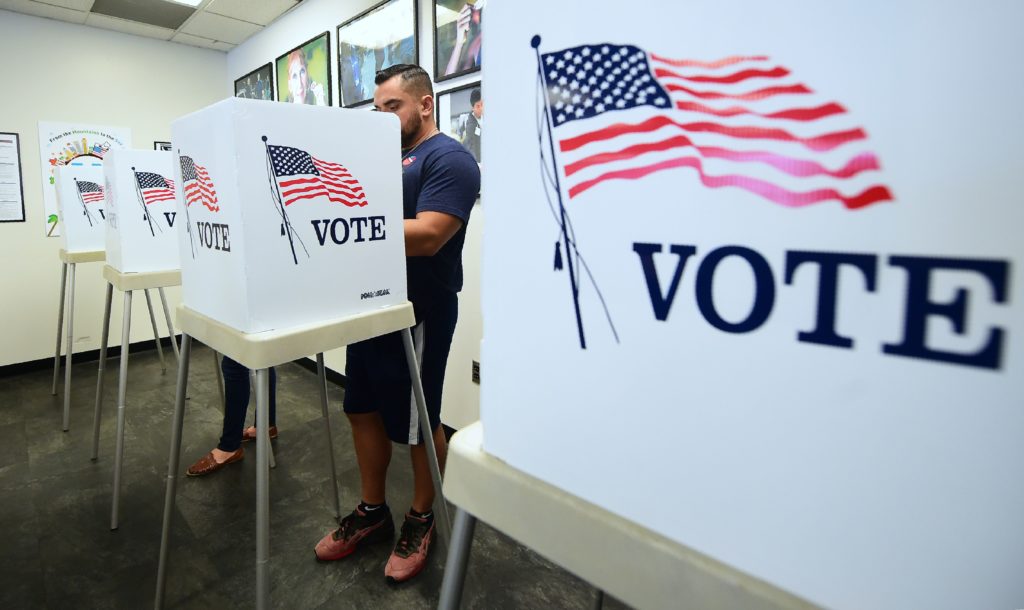
We check in with the same figures we spoke to after 2016 election.

Sarah Cascone

In November 2016, 23 artists talked to artnet News about their reaction to the election of Donald Trump. Two years into his presidency, the US midterm elections saw the Democrats regain a majority in the House of Representatives and the Republicans further cement their majority in the Senate. We checked in with those same artists to see how their feelings about the country, its future, and their place in it have changed since we last spoke.
We asked them: How have your views evolved over the past two years (on immigration, the economy, etc.)? How do you feel about the outcome of the midterms? And how do you think this election will affect your practice, and the country, moving forward?
Notably, many artists looked at the same results but had strikingly different reactions. Here is what they had to say. We will be adding to this post as more responses come in.
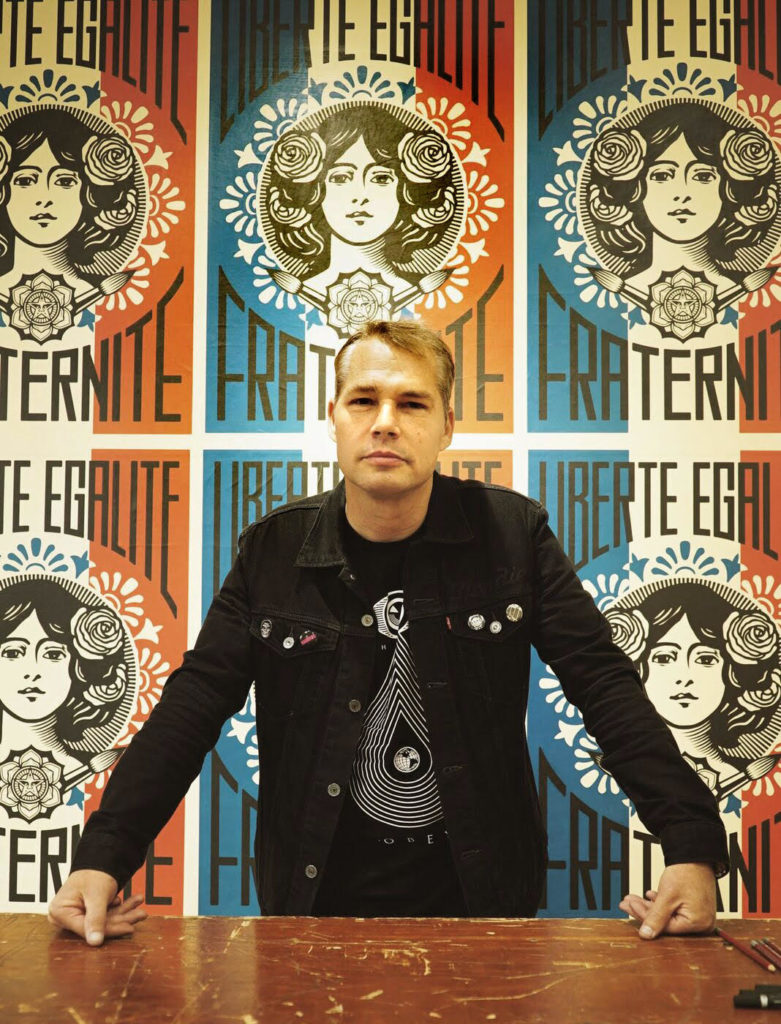
Shepard Fairey. Photo Courtesy of ObeyClothing.com.
Over the last two years, my belief that our politics need to be underpinned by a belief in equality and human dignity has only strengthened and come into sharper focus. I believe my art over my career, but especially the last two years, has reflected my views pretty clearly. We are a nation of immigrants, and without reasonable legal paths to immigrate or for asylum, current immigrants will be treated as invaders, unlike past generations of European immigrants who were welcomed in the melting pot to pursue the “American Dream.”
The economy may be doing better on paper, which is a continuation of its progress under Obama, but who is the economy benefiting most? The Trump tax cut primarily benefits the wealthy and corporations, while leaving us all dealing with the deficit and leaving fewer resources for needed infrastructure work.
Lower- and middle-income people have seen only minor benefits from the improving economy, and they’ll be the first to suffer when the economy takes a downturn.
The midterm elections demonstrate that many people are not happy with the current policies or lack of civility in politics. Turnout was OK, but not great. Voter apathy is still a huge problem, which is why my wife Amanda and I started a voter education and turnout organization called Make America Smart Again.
I think there were some positive gains made, but the election demonstrates that I need to push even harder to convey my values through my art and activism. Whether I’m dealing with a specific issue, or merely emphasizing our shared humanity and equality through my art. My art not only reflects my worldview, but also I use a portion of the money I make to support philosophically-aligned organizations. My art and politics are intertwined.
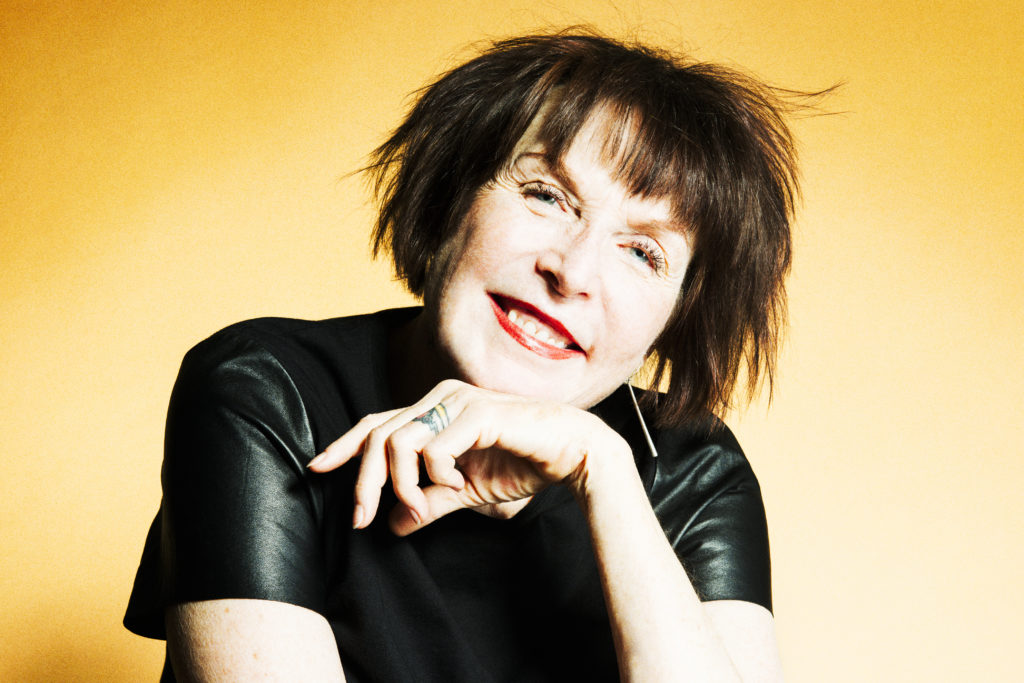
Marilyn Minter. Photo Courtesy of Ryan McGinley.
I’m feeling pretty good today. My views haven’t changed; I think young people are waking up to how fragile our democracy is. They are going to make a big difference. I am still going to do activism, but I feel like I can breathe now and go back to just painting for a while.
The GOP has invested in state and local government for decades. They drew the districts and put their thumb on the scales to make it harder for us to regain power. We can’t change this in 18 months, but we are not powerless anymore. It’s a new beginning
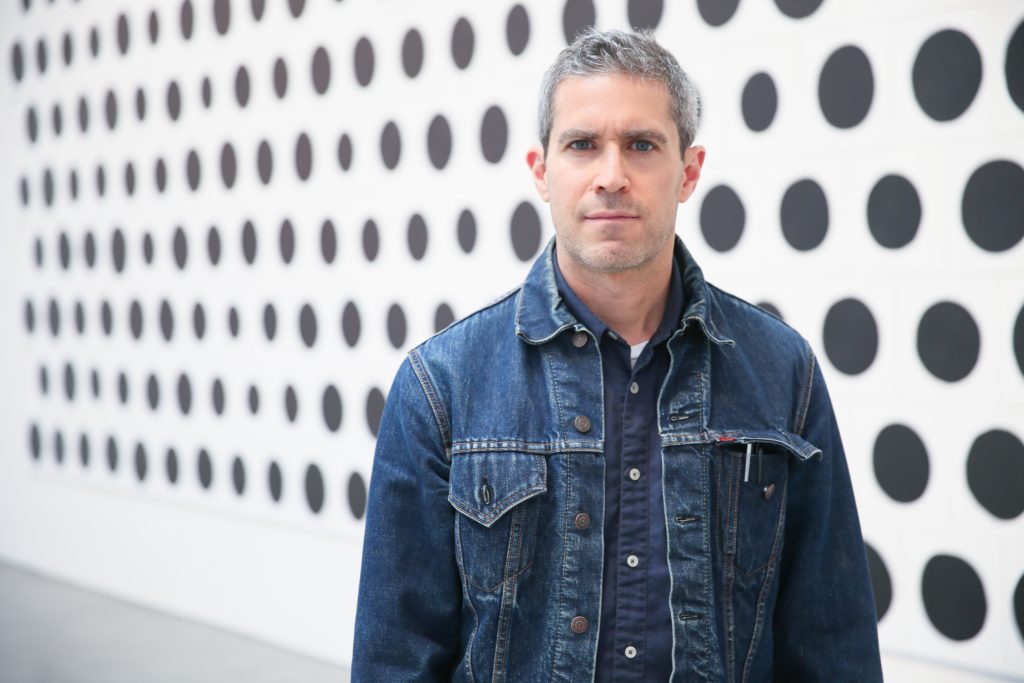
Jonathan Horowitz. Photo courtesy of the Brant Foundation.
It seems pretty clear now that Trump’s election wasn’t a freak accident. And I think [prominent Democratic commentator] James Carville was wrong when he said, “It’s the economy, stupid.” It’s actually the hate.

For Freedoms. Top (Left to Right): Hank Willis Thomas, Miriam Fogelson, Eric Gottesman. Bottom (Left to Right): Taylor Brock, Michelle Woo. Photo by Hassan Hajjaj courtesy of For Freedoms.
We’re still making sense of the election results, but our main takeaway is that we don’t think that much has changed with the dynamics of American politics that inspired us to launch the 50 State Initiative. There were some wins and losses on both sides last night. We expect the focus of national politics will soon shift to the 2020 presidential campaign, and the tone coming out of DC will continue to be divisive—really pitting Democrats versus Republicans. We feel like the partisanship will just continue, if not get worse.
For Freedoms [the artist-run platform Thomas and Eric Gottesman founded in 2016] is about challenging that binary of a two-party system. We feel like our work is going to become even more committed to using art and creativity to mobilize our community of artists and art institutions to try to get people to think bigger than two parties.
We want to find ways to come together to address the issues that we all care about—in our opinion, issues that shouldn’t be partisan. If you look at the artwork that our billboard artists created and the conversations that were taking place across the country through the 50 State Initiative, people are talking about issues that matter to their daily lives, whether it’s about immigration, or criminal justice reform, women’s rights, LGBTQ rights, or the environment.
For Freedoms will continue to find ways to bring people together in dialogue, to think about what our communities should look like, and how we can work to create change inside and outside of political systems.
The most important role of artists and the art community is to inspire the public and provide a more aspirational vision of what the country can look like, and how communities can come together at a time when the national tenor increasingly divisive.
Our role will be to set forth a more aspirational and inspiring and hopeful vision, challenging the polarity that’s been perpetuated by our political system. We have an incredible model to build off of in the 50 State Initiative, and have a mobilized community of artists and art institutions who want to continue to work together. We’re really excited to see how we comes next for For Freedoms.
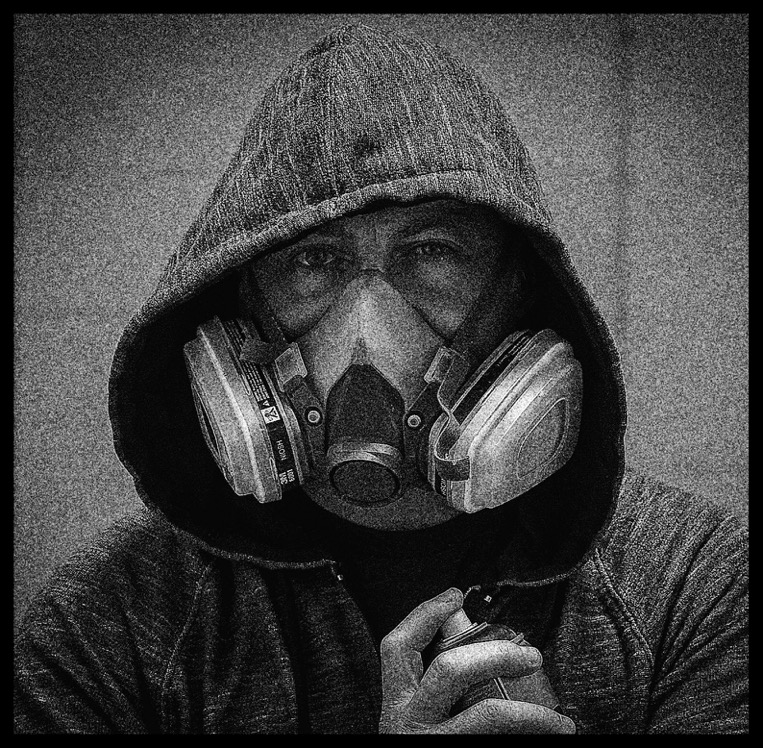
Plastic Jesus. Courtesy of Plastic Jesus.
Over the past two years we’ve seen a dramatic change in politics in the nation, because the right have moved further to the right, the left seem to be driven further to the left.
Sadly, I do not believe this will benefit anyone and will not heal division within the nation. Not until the we all realize that for a healthy democracy the fight must be over the middle ground and not the edges.
My opinion has not changed, that the well-being of all is more important than the well-being of the few, and a nation should benefit all people. This has been echoed by Trump’s much-heralded economic figures. Sure, they may be the strongest for many years (a trend that goes back to Obama), but is that reflected in individual lifestyles? Do those who had nothing before have more hope now? I’m not sure. A drive around Los Angeles’s Skid Row looks much the same as it did two years ago, if not worse.
As an artist, working in the current climate it is tough. To be honest, there is so much material on a daily basis to work with. However, it’s important not to become “the voice of the disenfranchised” and nothing else. But how do you balance creating political commentary and criticism with creating work that inspires, and gives amusement or enjoyment? Many artists have been seen as a creative voice through this, and it does feel like a responsibility that we have to live up to.
As far as business, I get many people saying, “this must be great for you,” when in fact that couldn’t be further from the truth. While Trump-focused art attracts attention and can certainly carry an important message, people very rarely want to buy it. If you’re a Trump supporter, you don’t want a piece critical of Trump on your wall, and if you hate Trump, you also probably don’t want it…
I will continue what I have been doing for the past few years—however, I also need to get back to creating more generic pieces of art, pieces that focus more on culture.
Politics is all about vision and communication and one thing that has stood out more than ever over the past two years is the bias of the media. When I arrived in LA in 2007, the first thing I did was get cable TV. And what was immediately obvious was that much of the news is actually opinion. Sadly this has feed the division, with news organizations stoking fear and anxiety.
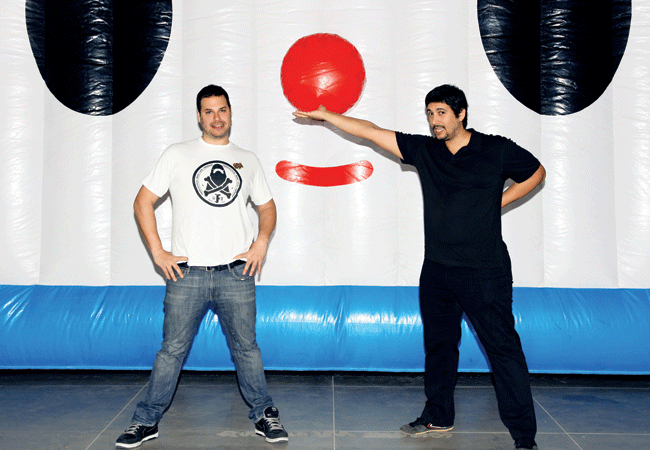
Arturo Sandoval and Sam Borkson of FriendsWithYou. Photo by Elliot and Erick Jimenez, courtesy of FriendsWithYou.
I stay positive that humanitarianism is the way. I am so proud to see so much power to the people; black, white, brown, huge female victories, Muslim, gay, straight, Native Americans—everyone unifying for the sake of good. We have come so far as a human race, and now is the time for us to take this world as our own, to act responsibly as one unified planet. We have to fight with love for humans, animals, and our living planet. The pendulum has just begun to swing, and I feel we are energized and ready to work together as a human race under love and liberty vs greed and fear.
We need to see beyond government, which is mostly doing the bidding of corporations, and cross borders to align our information. It’s a crucial moment and we will have a bigger fight on our hands to survive this world.
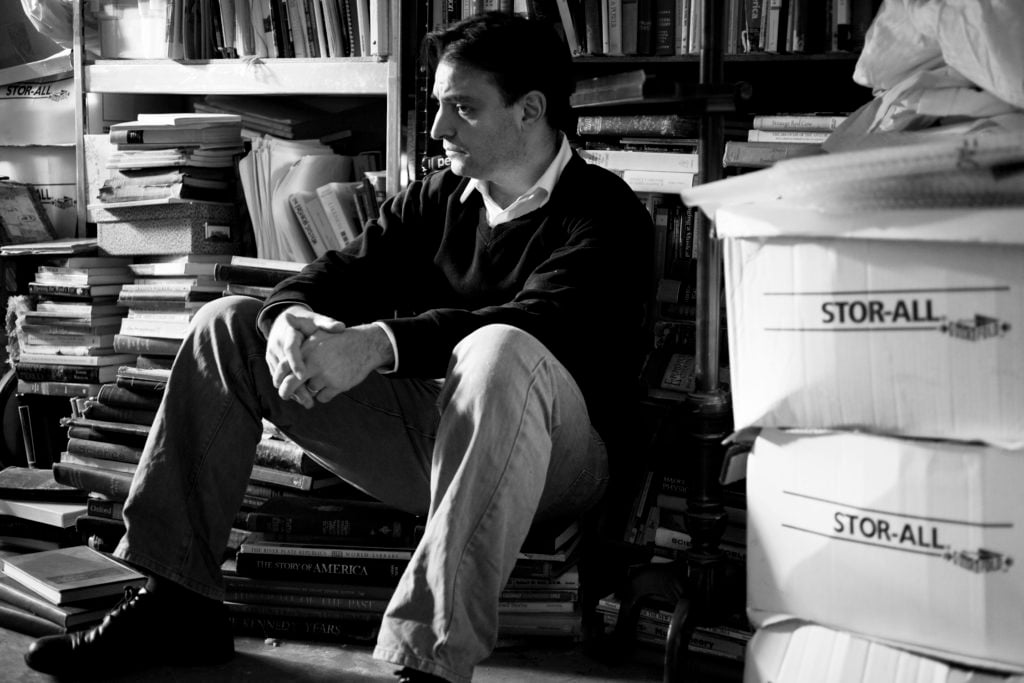
Pablo Helguera at his bookshop. Photo courtesy of the artist.
Almost everything about yesterday’s election has been already said. What should be stressed the most is that we have much work to do to reverse the current poisoning of the American political discourse and the pure hatred that has become actually external to left vs. right debates.
While I understand the logic of some conservative political ideas even if I don’t agree with them, racism, sexism, ultra-nationalism, and bigotry should not, and cannot, ever be the basis of a political platform. Trump’s strategy is essentially an authoritarian plan to stoke fear and hatred, repressing his enemies and dismantling the democratic process. Authoritarianism in its pure form follows no morals, no political leanings, and this is what we are contending with right now.
The role for artists to play in this climate is more urgent than ever. We were spared of the worst by not losing control of Congress in this last election, but there is much more to be done to eradicate the general political indifference all around us. I believe we need to make an effort not to fall into easy confrontational stunts that only serve as symbolic gestures that might entertain the audience in our progressive-leaning bubbles of social media and the art world. The hard work lies in engaging individuals to show how the demonization of the “other” is ultimately absurd.
In 2013, I opened a used Spanish language bookstore that serves immigrant communities in US cities. Now we are in Anchorage, Alaska, our 10th stop. I also worked with Dreamers (DACA recipients) to build a storytelling center that sensitizes the public to their plight, and my goal is to expand the program beyond the art world centers.
I often recall of one of the great phrases in Alexis de Tocqueville’s Democracy in America: “History is a gallery of pictures in which there are few originals and many copies.” The place we are in history right now may unfortunately not be unique, but our role as artists is to find new ways and strategies to, as my friend the artist Dread Scott often says, “propel history forward.”
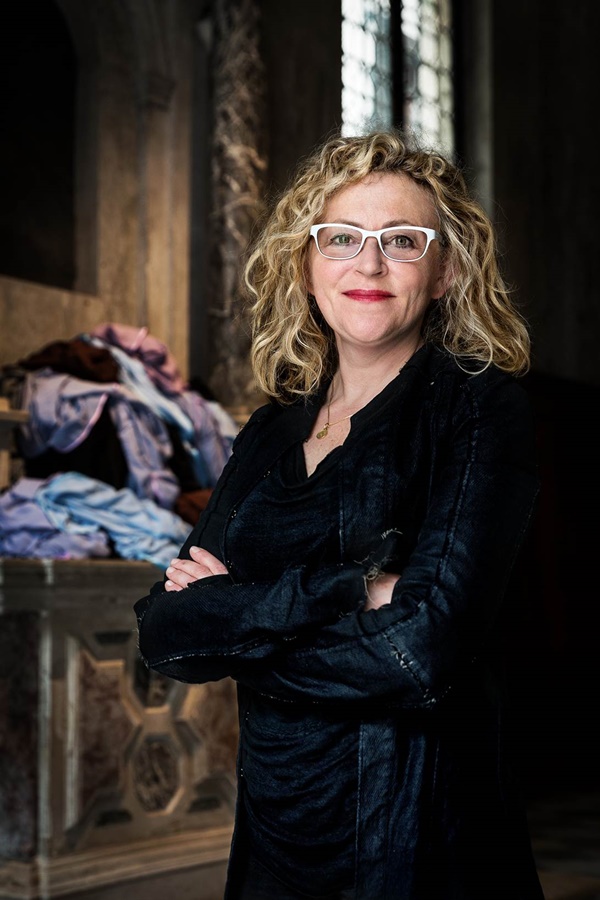
Patricia Cronin. Courtesy of Mark Blower.
I didn’t know we were going to see, baldly, the extent of human beings’ capacity for cruelty and hatred these last two years. The misogyny, racism, anti-Semitism, Islamophobia, homophobia, transphobia, xenophobia, etc. has been terrifying.
Based on the outcome of the midterms, I’m relieved and cautiously optimistic that there will be checks and balances on the president with the Democratic control of Congress and they can finally thoroughly investigate this administration’s rampant corruption and curtail their dangerous policies.
I will continue my unwavering commitment to creating artwork with social justice and feminist subjects like marriage equality and global human rights of women. I think the Democratic Governorship wins should work to reduce gerrymandering and toward equal access to voting for all people. Moving forward, I want the Democrats to fight hard; women, LGBT people, and people of color to continue to rise in leadership; and I want our fellow citizens to fight back against white male supremacy.
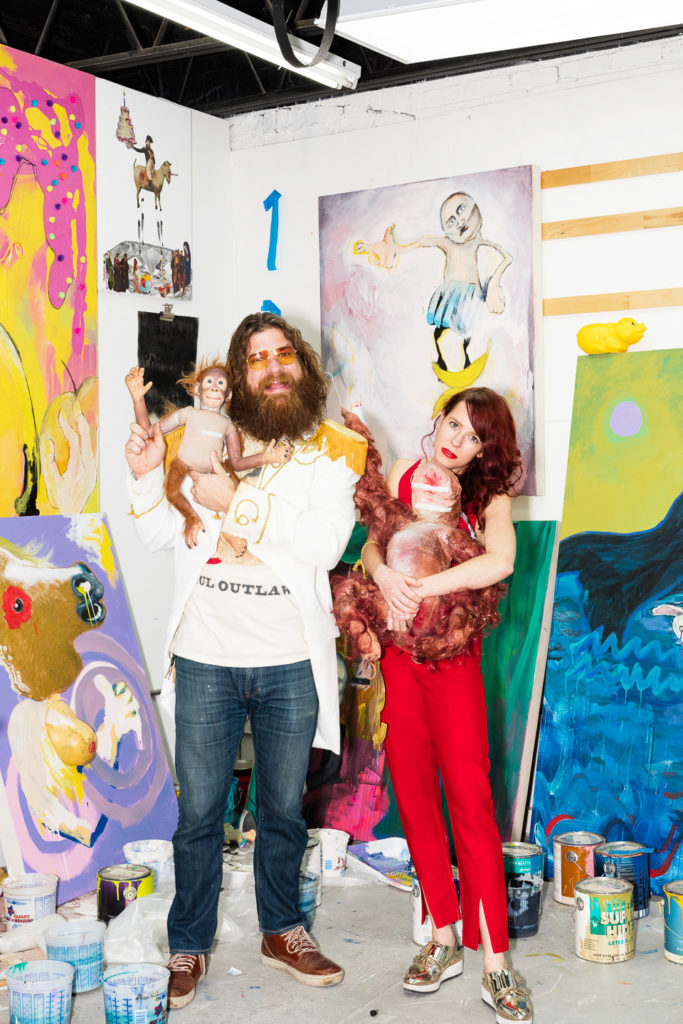
Paul Outlaw and Jen Catron. Photo by Nicholas Calcott.
These last years have felt like a constant assault. An underlying anxiety laces our day-to-day life, and this push and pull of mundanity spiked with political unease will continue to affect our artistic practice. Our work, while still absurd and humorous, now often quickly oscillates to the tragic, to the nonsensical, mimicking this constant tug of war between what living is like in 2018.
Trump began his presidential campaign with dehumanizing immigrants by calling them rapists, and the hate has not improved in the weeks leading up to the midterms. By demonizing migrants seeking help as “invaders” and “animals” to be controlled by the military, he continues to use obvious lies and scare tactics to sway his base and divide our nation. It’s difficult for us to continue to hear this frightening, aggressive message, and so discouraging that so many people either agree, or do not mind so long as they continue to hold power. Love thy neighbor and empathy have been replaced with hate and fear, with white nationalism, violence, and deaths. Passions and false faith have replaced reason and science, truth labeled as “fake news.” There is no reason to listen to each other, no reason to compromise without a balance of power, no reason to reach across the aisle, but we must continue to push forward.
Yet a majority of Americans do not agree with Trump, as the popular vote has proven. We won the house, and that is a triumph, as one party ruling is never healthy. We take these victories, we build on them, we push forward, we have hope that balance will be restored.
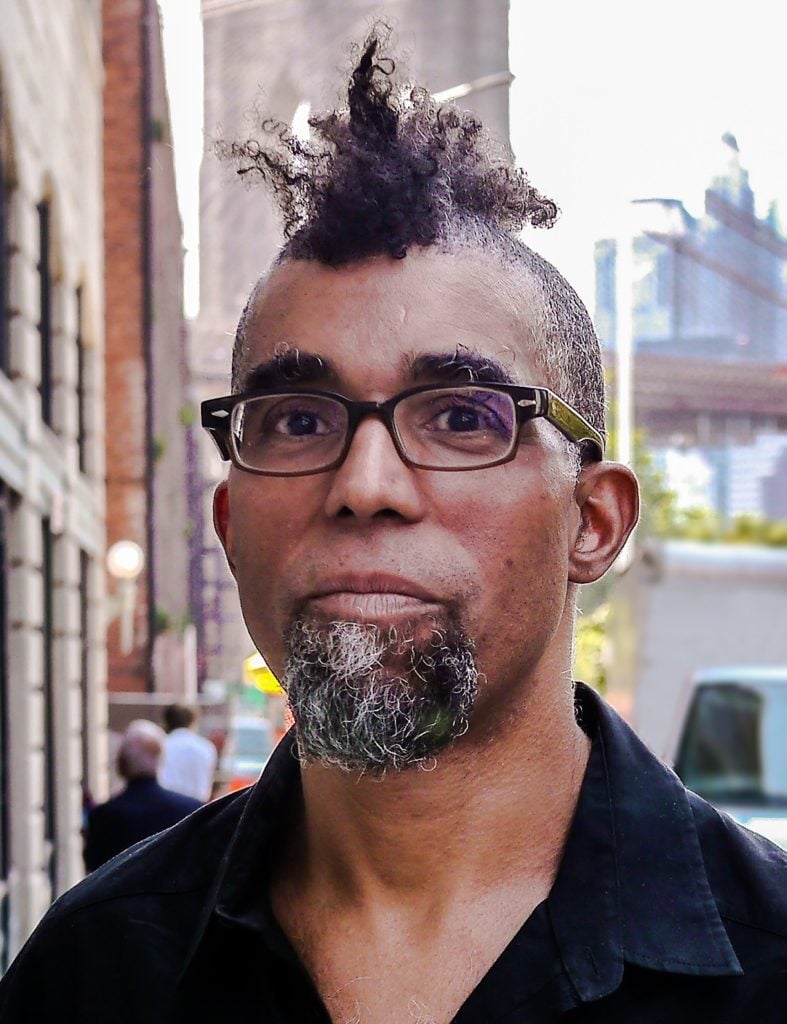
Dread Scott. Courtesy of the artist.
Two years ago when you asked for my thoughts, I wrote: “Trump is a fascist. He has threatened to deport millions, force millions of others to register in a database, seal borders to others. He has proclaimed that he will expand wars, imprison political opponents, and curtail a free press. Whether he can do all of this the first week he is in office or whether this will take longer to implement can’t be known at present. But he has unleashed a movement of racist shock troops who are already attacking and threatening ordinary people of color…”
Two years on, we’ve seen families separated at the border and baby jails. The Muslim ban is largely being implemented. A man who was credibly exposed as an attempted rapist, who tried to force an immigrant in detention to have a child against her will, and who believes in unrestrained executive power was installed on the Supreme Court. He is, like Trump’s other appointee, Neil Gorsuch, an “originalist” who believes in interpreting the Constitution as it was written—a document that reflects the political vision and morality of the slave owners who wrote it. Rabid nationalism is in place and it has escalated tensions with many countries and it could quickly lead to war. Journalists are being targeted.
In the past two weeks, a white racist walked into a grocery store and murdered two random Black people. Days later, a man walked into a synagogue and murdered 11 people. Racist and anti-Semitic graffiti was written in synagogues and on the African Burial Ground not in “red states,” but in New York City. We’ve seen the army mobilized to the southern border to stop migrants—a “response” to an invented threat.
In short, fascism is being consolidated.
As for the midterms, while I think you can learn something from the fact that millions of mostly white people supported candidates who ran on racist, anti-immigrant, nationalistic platforms, I think looking to the election misses the point. The point is that fascism is being consolidated and, frankly, people need to shed illusions about the real depth of the problem and about how progressive social change happens. The Trump/Pence regime needs to be driven from power. That will take activism from below, not get-out-the-vote campaigns. It will take people in the streets like in Tahrir Square or in the week after week way that forced South Korean President Park Geun-hye from power. It will take people throughout society acting outside of normal political channels. It will mean not relying on the Democrats, who have normalized and accommodated this fascism and hoping that they will put an end to the nightmare that millions of us feel in our bones.
It is possible that the midterms will be a jolt that wakes people up and rather than consoling themselves with “we got the House,” instead compels them to get out of their comfort zones and throw in with a movement that can drive fascism from power. I hope you will join me in this. One way to do so is to connect with refusefasism.org.
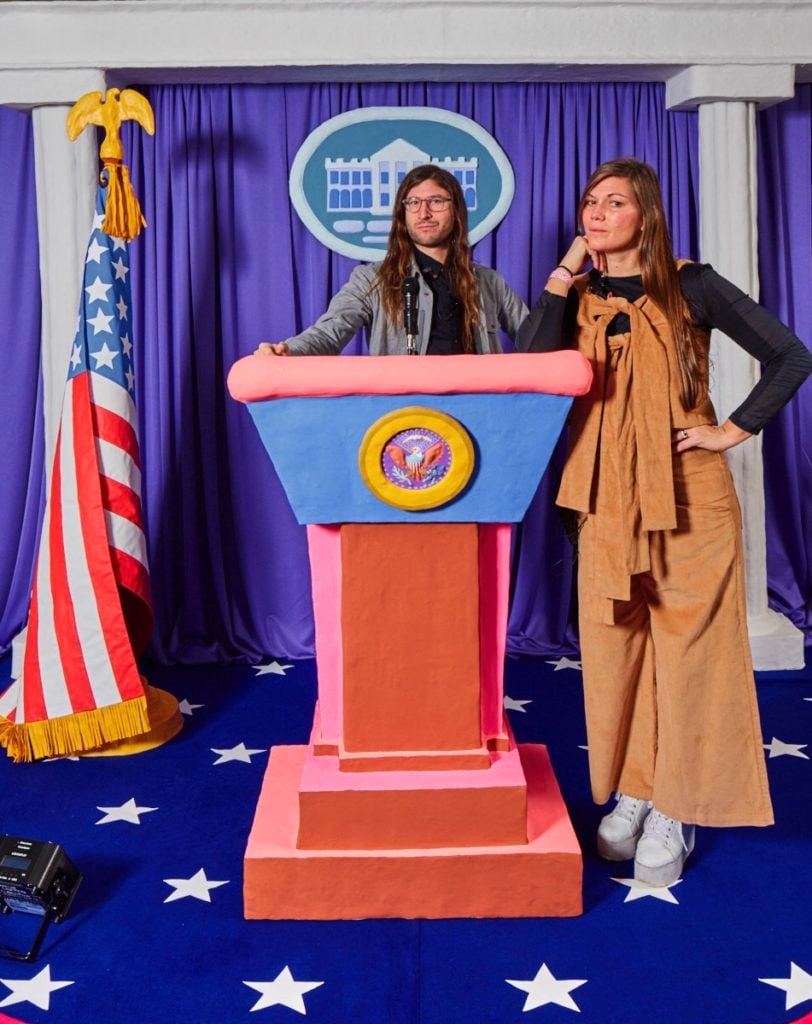
Ambre Kelly and Andrew Gori with A Pressing Conference by Macon Reed curated by Helen Toomer-Romano. Photo ©SPRING/BREAK Art Show 2018 by Samuel Morgan Photography.
The 24-hour news cycle might leave the impression of immediacy in current events, but the two of us tend to have to remind ourselves that the fallout from political decisions of administrations are often molasses slow. The economy’s success currently is the handiwork of eight years of careful rebuilding during a very different president’s legacy than the one we’ve now got, just as its undoing 10 years prior was from the actions of presidents a decade before that.
Cultural fallout, however, seems to happen more quickly. What concerns us particularly is how young followers of the president will likely be emboldened to adopt his tone of dismissiveness towards women, people of color, and vulnerable communities. Though all of this feels put in some kind of check by the shift of control in the House of Representatives, we cannot get comfortable and our work as creators is still necessary to combat the toxic ideas still in play, particularly as cultural impact can, in some cases, hit fast and hit hard.
Because of this, our formal practices—and our programming at SPRING/BREAK—will tend to shift according to the ideas that seem most urgent. As artists, we think these shifts have taken place in the wake of the 2016 and 2018 elections, formally, with Ambre’s “Current Affairs” painting series (she paints the co-mingling of political commentary within arts news articles) and with Andrew’s written and film work (he’s just finished a novel about a dystopic reality TV future). And this change will reveal itself through the many voices of the curators and artists in SPRING/BREAK Art Show 2019 as well, under the exhibition theme “FACT AND FICTION.”
Some days, it’s hard to find the relevancy of keeping these formal practices going—Ambre oftentimes contemplates getting into local politics—but we still think artists are the voice of change and we very much need to hear those voices loud and clear right now.
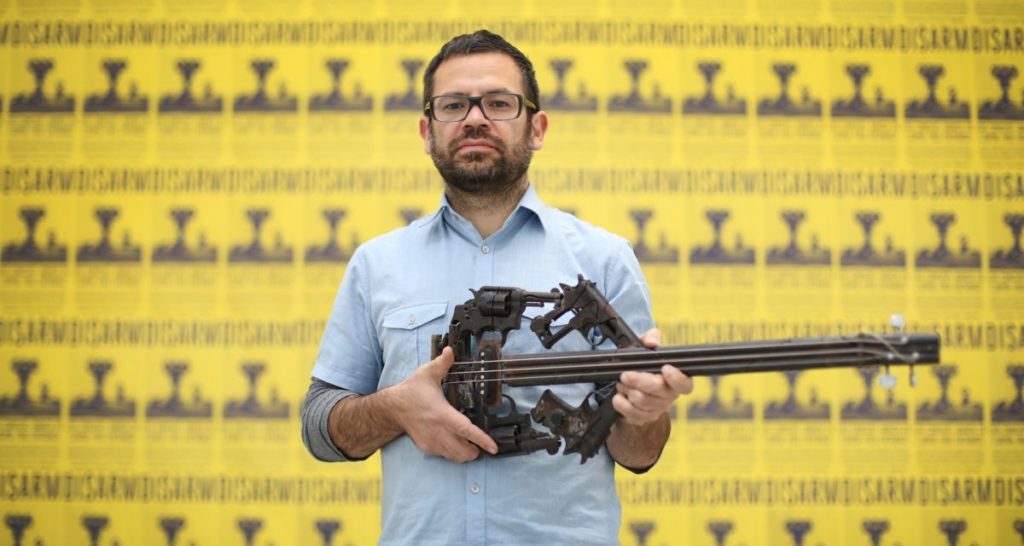
Pedro Reyes. Photo by Chris Hind.
In the last two years, we have seen the exacerbation of a migrant crisis, where kids are now in detention centers held in cages. So, for instance, I am helping a woman from Honduras who has a four-year-old that she hasn’t been able to see in six months. Imagine the psychological trauma that such thing can do to you. I mention this specific case because often stories are more compelling than statistics. Stories like this need to be heard, we cannot be insensitive to human suffering.
Doing research, I found that often each country has a map of its own First Nations. Yet I couldn’t find one map for all the ethnic groups combined across the hemispheres, so I decided to create one. It is important to show that the political borders we know today are only 200 years old in comparison to a continent that has been inhabited for 11,000 years.
I believe that as artists we must bring some perspective to a time when xenophobia and racism are increasing; while looking ahead, we are going to have ever-increasing migration. On the other hand, it is important to show that many of these Indigenous cultures continue to exist, and that in contrast to these original settlers, we are all immigrants. And as used as we are to the current political borders, these have changed in the past, and we can only expect them to continue changing in the future.
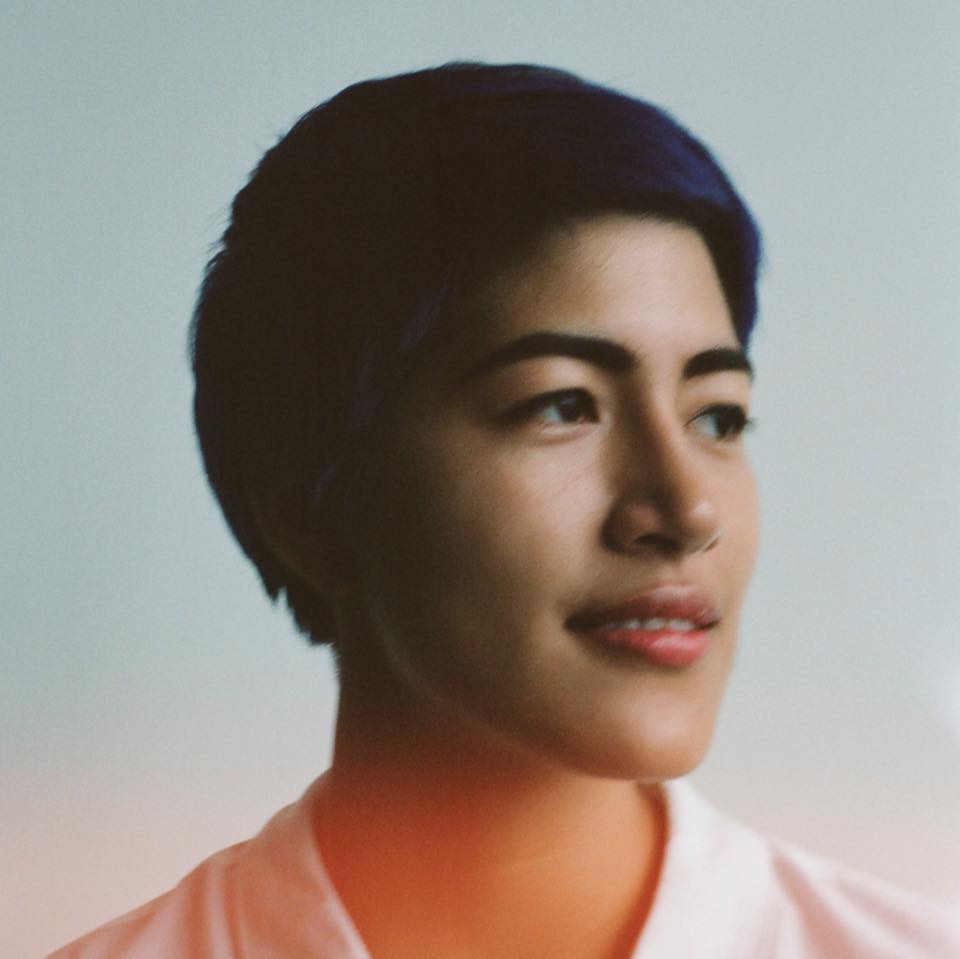
Emma Sulkowicz. Photo by Jamie-James Medina.
I’m grateful that the house is blue.
That being said, what I’ve witnessed over the past two years has led me to believe that the biggest problem facing us today is that people are too deeply entrenched in the tribal mindset of their own political party’s affiliations. Our citizens are unable to think outside the box and consider what’s best for our country.
Kavanaugh’s job interview really put this into sharp relief. The question of whether he was a good candidate for the Supreme Court should not have been a partisan issue, dividing the country across political lines. My main goal moving forward is to ensure that people of all beliefs and opinions can communicate with each other, whether they’re Democrats, Republicans, or sick of politics all together. This is the only way we are going to see real change in America.
I’m no longer as invested in the discourse of “fighting” for political views, which is a perpetuation of that very tribalistic mindset keeping our country at war with itself. I want to shift the conversation to one of “understanding,” “reuniting,” and ultimately, “helping.”
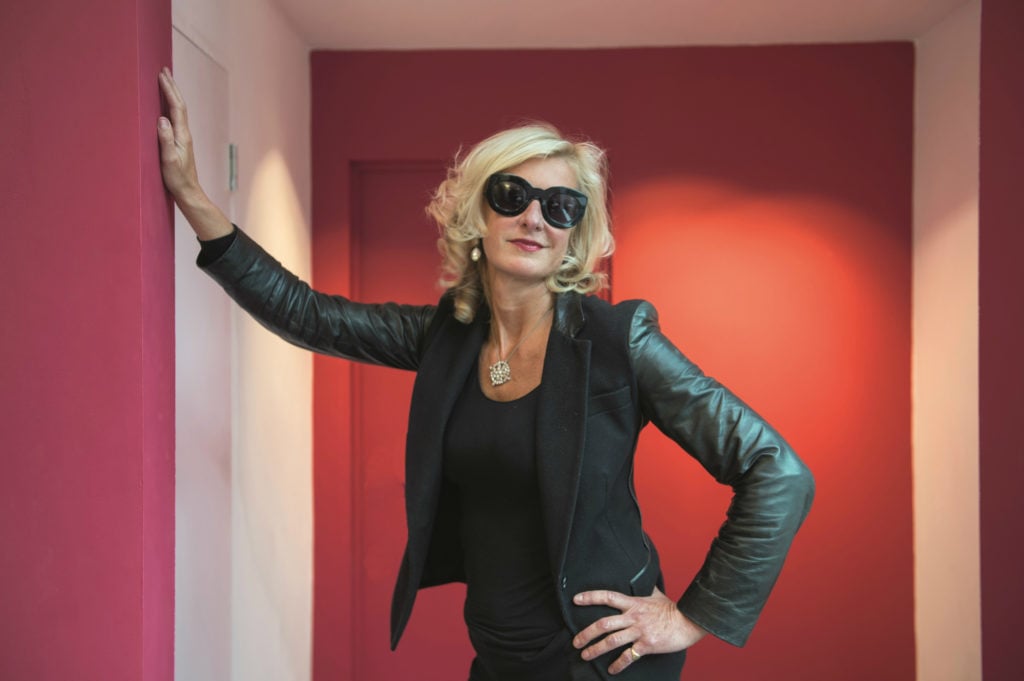
Alison Jackson. Photo by Francesco Guidicini.
This is a political chess game for Trump.
He’s fired [attorney general Jeff] Sessions, cleared the way—now the Democrats have made a great move with winning the house—I still think Trump will check mate in the end and win the next election.
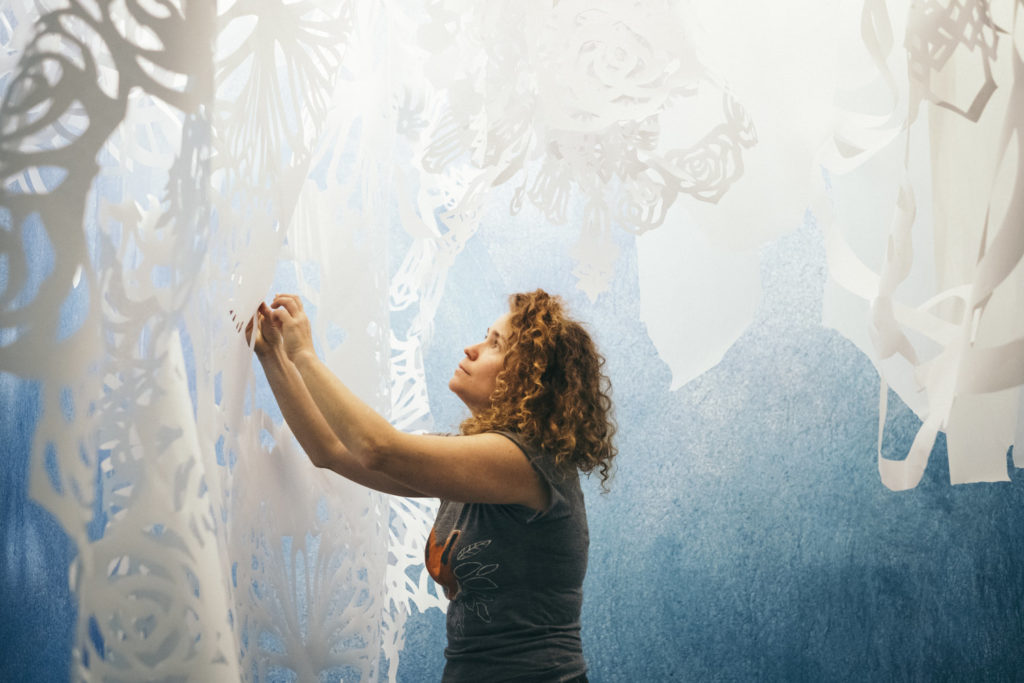
Swoon. Photo by Molly Krause courtesy of Molly Krause Communications.
Honestly, I’m thrilled. I just watched my home state of Florida almost (and maybe still!) elect it’s first black governor. What a huge step, no matter the final outcome. And this was the first election that my brother, sister and I all voted in. I was pretty proud of us as a family. In many ways the country stood up, showed it’s conscience and good sense, and pushed back against the madness of the last two years. As for the folks that didn’t….two years ago I was hoping to enter into much more of an honest dialogue than I’ve been able to. Truth be told, I know that my own snarky anger has often stood in the way of the miraculously evolved kind of communicating it would take to enter into a dialogue with folks who are firing off from a frazzled limbic system. But, real talk, how do you communicate with people who short circuit in the face of basic information — who start calling you “commie sheep!” because that’s so much more comfortable for them than the anxiety brought up by reading and by weighing ideas? In that respect I’m as lost now as I was two years ago.